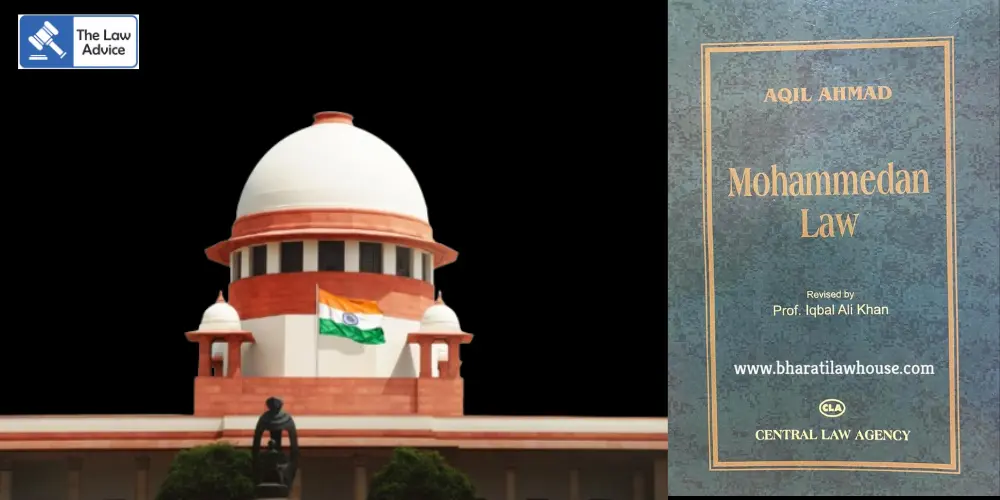
Reaffirming the foundational principles of Mohammedan Law, the Supreme Court has once again clarified the three essential conditions required for a valid oral gift (hiba) —
(i) a clear declaration by the donor of the intention to gift
(ii) acceptance of the gift by the donee
(iii) delivery of possession of the property, either actually or constructively.
The Bench, comprising Justice Ahsanuddin Amanullah and Justice SVN Bhatti, emphasized that a written instrument is not mandatory for a valid oral gift under Mohammedan Law. Even if a written document exists, it does not automatically convert the gift into a registered transaction, nor does it alter its character as an oral hiba.
Invoking Section 129 of the Transfer of Property Act, 1882, the Court highlighted that Mohammedan gifts are specifically exempt from the general rule under Section 123, which otherwise mandates registration for gifts of immovable property. Therefore, an oral gift that satisfies all three essential requisites is complete and irrevocable, irrespective of the absence of registration.
Addressing previous interpretations, the Bench disapproved of the distinction often drawn between documents that merely record a past oral gift (which do not require registration) and those that are contemporaneous with the gift (which allegedly do). The Court termed this approach “inappropriate and inconsistent” with the established principles of Mohammedan Law, reaffirming that the delivery of possession remains the decisive element in validating a hiba.
On this crucial point, the judgment underscored that possession may be actual or constructive. Constructive possession can be proved through overt acts that demonstrate a clear intention to transfer control — such as mutation of the donee’s name in revenue records, or the donor’s conduct indicating transfer of authority. Continuous exercise of ownership by the donee — including collecting rent, managing property, or having their name reflected in official records — serves as strong evidence of a valid gift. Conversely, if the donor continues to collect rent or retain control over title documents, it may indicate that possession was never transferred.
In this context, the Court cited the classic Privy Council decision in Mussamut Kamarunnissa Bibi v. Mussamut Husaini Bibi (1880 UKPC 36), which had cautioned that in the absence of consideration, proof of delivery of possession must be established beyond doubt. The Privy Council had also warned that oral gift claims made after a donor’s death should be examined with “the greatest care, perhaps even with suspicion,” to prevent misuse.
Reiterating the importance of transparency, the Supreme Court observed that for a valid oral gift, public and demonstrable possession must be proved. The absence of mutation or other visible signs of ownership may cast serious doubt on the genuineness of the transaction.
The case before the Court — DHARMRAO SHARANAPPA SHABADI & ORS v. SYEDA ARIFA PARVEEN — thus serves as a significant reaffirmation of long-standing principles under Mohammedan Law, ensuring that delivery of possession remains the cornerstone of a valid hiba, and registration requirements under the Transfer of Property Act do not apply.
Website designed, developed and maintained by webexy